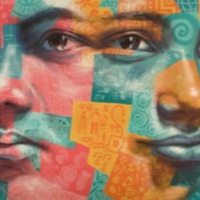
Trishna
The Global Slavery Index 2018 estimates that on any given day there were nearly 8 million people living in modern slavery in India. The GSI 2018 reports an emerging trend in northeast India where organised trafficking syndicates operate along the open and unmanned international borders, duping or coercing young girls seeking employment outside their local area in to forced sexual exploitation. Many women and girls are lured with the promise of a good job but then forced in to sex work, with a 'conditioning' period involving violence, threats, debt bondage and rape. In 2010, Trishna was 14 years old when she met a boy who lived in a village close to hers. He kidnapped her, took her to different city and sold her to traffickers who said she would have to dance to earn back the money they had paid. While Trishna was finally rescued after around 6 months, her experience with the police was not a pleasant one. They sexual abused her, threatening to tell people that she had chosen this life. Upon returning home, people in Trishna’s village did not treat her the same and her mental health has suffered as a result. In 2015, Trishna was finally able to get help through a psychiatrist and an NGO who reached out to assist her.
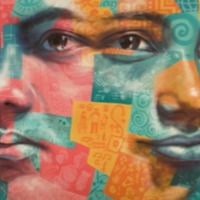
AK
There are an estimated 10,000 people living in modern slavery in Hong Kong (GSI 2018). Approximately 370,000 foreign domestic workers, primarily from Indonesia and the Philippines, work in Hong Kong; some become victims of forced labour in the private homes in which they are employed. An NGO report released in 2016 estimated as many as one in six foreign domestic workers is a victim of labour exploitation. Employment agencies often charge job placement fees in excess of legal limits, and sometimes withhold identity documents, which may lead to situations of debt bondage of workers in Hong Kong. The accumulated debts sometimes amount to a significant portion of the worker’s first year salary. Some employers or employment agencies illegally withhold passports, employment contracts, or other possessions until the debt is paid. Some workers are required to work up to 17 hours per day, experience verbal, sexual or physical abuse in the home, and/or are not granted a legally required weekly day off. AK, a 30-year-old woman from Ponorogo (2010), was promised by her broker the Minimum Allowable Wage of HK$3,580 (US$460) but was told otherwise at the training centre in Malang.
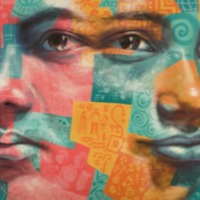
Habtu
There are an estimated 451,000 people living in modern slavery in Eritrea (GSI 2018). The small country has a unique system of compulsory, open-ended military service for citizens that makes it one of the most oppressive states in the world. The government has enforced its current policy of sending all secondary school students to serve for a minimum of twelve months since 2003. While Eritrean law puts the minimum conscription age at 18, many teenagers find themselves recruited during high school at age 16 or even younger. In rural areas, where formal education is rarer, the army will visit villages to round up young girls and boys who look roughly of age, to begin their program of combat training and forced labour. Habtu was taken to Sawa training camp in 2010. There he was forced to cook the soldier’s meals and was subjected to physical abuse daily.
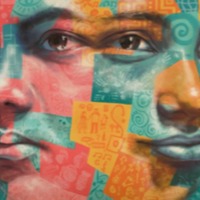
Robel
There are an estimated 518,000 people living in modern slavery in Egypt, 465,000 in Sudan and an estimated 451,000 in Eritrea (GSI 2018). Since 2006 tens of thousands of Eritreans fleeing widespread human rights abuses and destitution have ended up in Egypt’s Sinai Peninsula. Until 2010, they passed through Sinai voluntarily and generally without any problems and crossed in to Israel. However, since then, Sudanese traffickers have kidnapped Eritreans in eastern Sudan and sold them to Egyptian traffickers in Sinai who have subjected at least hundreds to violence in order to extort large sums of money from their relatives. Robel*, a 26-year-old Eritrean man, recalls how he was held by a trafficker in Sinai for three months in late 2010.
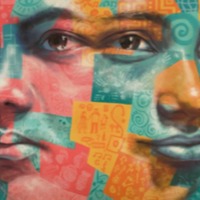
Medi
There are an estimated 1,045,000 people living in conditions of modern slavery in the Democratic Republic of Congo (GSI 2018). In 2016 several armed groups continued to abduct and forcibly recruit men, women and children as combatants and in support roles such as guards, cleaners, cooks and spies. In 2016, 184 cases of child soldiers were reported, with 1,662 children reported to have separated or escaped from armed groups. Child soldiers who manage to escape remain vulnerable to re-recruitment as adequate rehabilitation services remain unavailable to children suffering trauma, stigmatisation and the continued threat of armed groups. Medi was abducted by the Forces armées de la République démocratique du Congo (FARDC) in 2010.
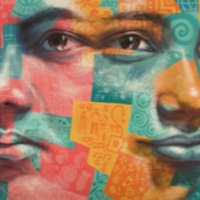
Samnang & Sopheak
Cambodia remains a source, transit and destination country for men, women and children subjected to forced labour and sex trafficking. Cambodian adults and children migrate to other countries within the region and increasingly to the Middle East for work; many are subjected to forced labour on fishing vessels, in agriculture, in construction, in factories and in domestic servitude—often through debt bondage. Significant numbers of male Cambodians continued to be recruited in Thailand to work on fishing boats and subjected to forced labor on Thai-owned vessels in international waters. Cambodian victims escaping from this form of exploitation have been identified in Malaysia, Indonesia, Mauritius, Fiji, Senegal, South Africa, and Papua New Guinea. Cambodian men reported severe abuses by Thai captains, deceptive recruitment, underpaid wages, and being forced to remain aboard vessels for years. In 2010, two brothers Samnang and Sohpeak left their home and country to find work they hoped would help their struggling family. The brothers were deceived and trafficked on to fishing boats where they were forced to work long hours with no rest and subjected to physical abuse.